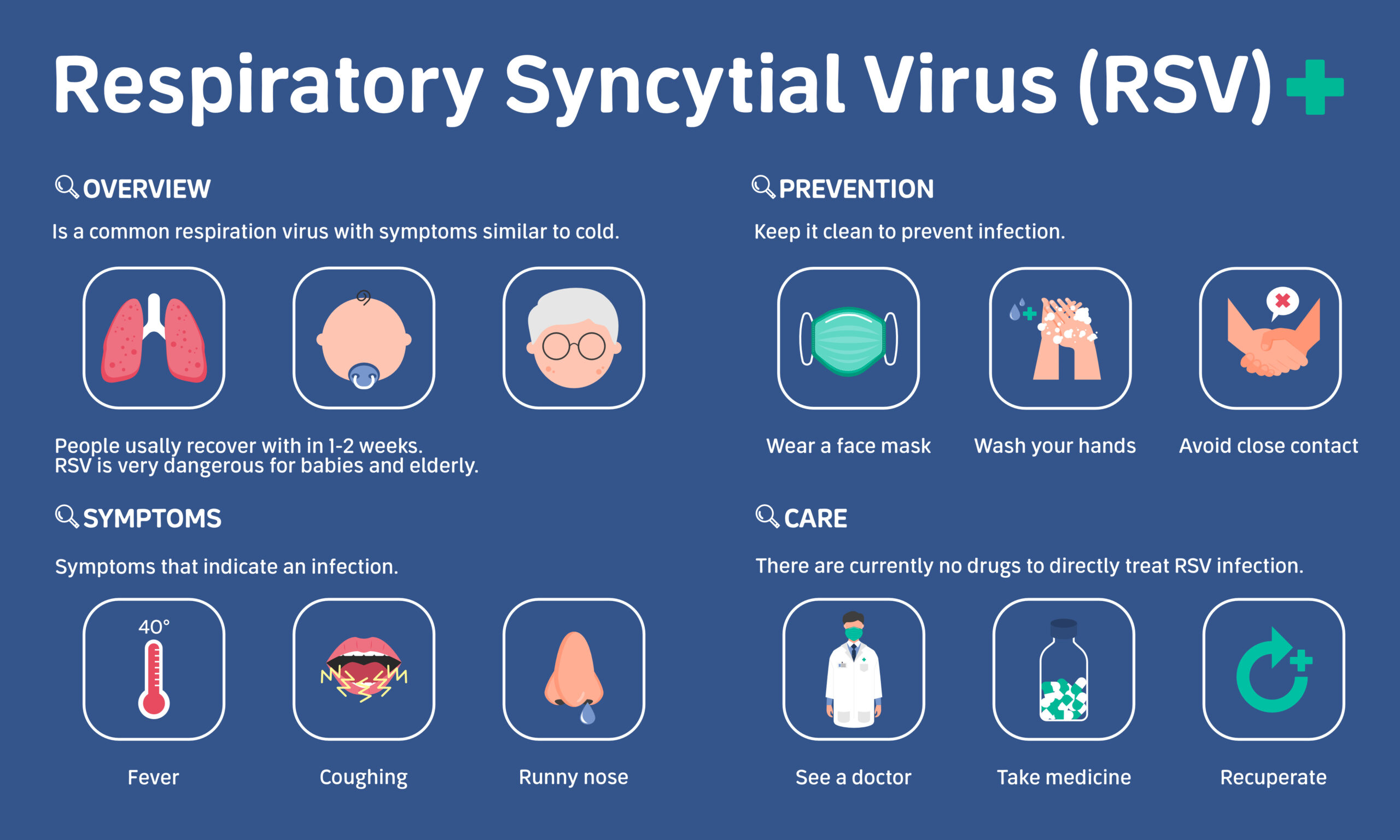Amid an escalating flu season and ongoing COVID-19 infections, respiratory syncytial virus (RSV) is filling children’s hospitals. Doctors have also seen a rise in the number of adult patients with RSV, and the disease can be especially serious for seniors and people with underlying health conditions as well as young children.
According to a recent CNN Health report, Centers for Disease Control data shows that this season, about 6 out of every 100,000 seniors have been hospitalized with RSV, which although much lower than the rate for children, is unusually high for adults. Before the pandemic, hospitalization rates for seniors were about 10 times lower at the same point in the season.
Researchers suggest that last year at the same time, more children and older adults were wearing masks and practicing social distancing due to the concern over COVID infection. Now with vaccinations and boosters, more people are travelling, dining out, visiting friends and family, and have abandoned the wearing of masks.
It’s not uncommon for RSV to be overlooked by adults and even doctors. But like the flu, RSV can lead to severe illness in elderly adults and people with a weakened immune system. Like the common cold, symptoms can start with a runny nose, loss of appetite, coughing, sneezing, fever and wheezing. Usually, the symptoms last a week or two and resolve with rest and fluids. But when RSV leads to dehydration, breathing trouble, pneumonia or bronchiolitis, the infection can be serious in some adults. Seniors over the age of 65 are at the highest risk among adults, and the virus can spread quickly through nursing homes or long-term care facilities.
Adults with chronic heart disease or heart failure, and lung disease like asthma, or COPD are more likely to require hospitalization as a result of RSV. If you experience symptoms of RSV and are in a high-risk group, you should visit your doctor to get tested early to determine which infection is present. There are anti-viral drugs available for the flu or COVID that can shorten the length of time you are sick and keep the infection from becoming more serious. There is no RSV anti-viral or vaccination available yet – but four vaccines are being reviewed by the FDA.
If you do become ill with RSV, drink plenty of fluids, get lots of rest, and stay home to prevent the spread of the virus to others. If you must be around others, wear a mask and keep up with frequent hand-washing. If you are feeling short of breath or wheezing, you should either see your doctor or go to the emergency room for supplemental oxygen treatment.






Add Your Voice
0 Comments
Join the Discussion